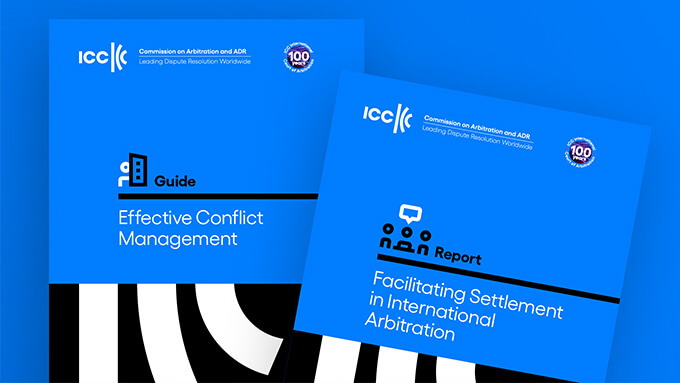Arbitrability of Corporate Law Disputes
Introduction
In Turkish law, there are two pieces of legislation that deals with arbitrability. The first one is Article 1-IV of International Arbitration Law numbered 4686, and the other is Article 408 of Civil Procedure Law numbered 6100. Both of these provisions define arbitrability as “disputes subject to the will of both parties.”
Disputes arising out of corporate law may be divided into two general categories: (i) disputes between shareholders; and (ii) disputes between the company and the shareholders (“corporative disputes”). The arbitrability of these two types of disputes will be analyzed, below, under separate headings.
Disputes between shareholders
Disputes between shareholders may arise out of three different contracts:
- Share purchase agreements;
- Joint venture agreements;
- Shareholders agreements.
Both share purchase agreements and shareholders agreements are of a contractual nature. The fact that the company is a party to these agreements does not change this nature. Accordingly, the principle of freedom of contract applies to these agreements, which means that provided that the provisions are not contrary to mandatory laws, parties are free to make provisions that suit them best.
There is consensus among legal scholars regarding the arbitrability of disputes between shareholders. This view was supported during the period of the abrogated Turkish Commercial Code numbered 6762, and stands now, i.e. after implementation of the current Turkish Commercial Code numbered 6102 (“TCC”).
The Court of Appeal upholds this view, as well, and is clear from the extracts of its decisions provided, below:
“… since disputes between the shareholders and disputes between the shareholders and the company is subject to an arbitration clause foreseen in the company’s articles of association, the timely made jurisdictional objection by the respondent’s counsel is upheld …”[1]
“… since the share purchase agreement relating to the sale of shares in a joint stock company is not related to public order, the arbitration clause in the agreement is deemed valid …”[2]
Unlike the consensus in relation to the arbitrability of disputes between shareholders, there is no agreement in the doctrine regarding the arbitrability of corporative disputes.
Corporative disputes
Corporative disputes may be defined as disputes arising out of corporate law related to the structure and operation of the company, as well as disputes between the company and its shareholders. Examples of these types of disputes include the determination of the nullity or the cancellation of general assembly resolutions, lawsuits relating to the liability of the members of the board of directors, the dissolution of companies for just cause, lawsuits arising out of mergers or split-off of companies, expulsion of a shareholder, and etc.
There are diverging viewpoints amongst legal scholars on the arbitrability of these types of disputes. Certain scholars argue that disputes concerning an economic interest should be arbitrable. These scholars argue that disputes relating to the cancellation of general assembly resolutions and the dissolution of companies are not arbitrable. Another group contends that all disputes, but for those regarding the dissolution of companies, are arbitrable, as these disputes are subject to the will of the parties.
Each corporative dispute needs to be considered separately, based on a proper review of the factual matrix. In my opinion, most corporative disputes are subject to the will of the parties and are, thus, arbitrable. Examples of arbitrable corporative disputes include non-contentious disputes related to the exercise of minority rights and individual shareholding rights, liability of board members, disputes concerning share transfers, exercise of exit rights or squeeze out rights, and disputes related to the execution of capital debt.
Only a few decisions by the Court of Cassation have been rendered on this matter. In a decision rendered in 1983, the Court of Cassation decided that a request for registration in the share ledger was accepted to be arbitrable:
“… a request for a registration in the share ledger by the heirs and the rejection of such request by the company by virtue of Article 31 of the articles of association should be resolved by arbitration …”[3]
The arbitrability of corporative disputes is mainly discussed in relation to: (i) cancellation of general assembly resolutions, and (ii) the dissolution of companies.
Cancellation of General Assembly Resolutions
In relation to the arbitrability of the cancellation of general assembly resolutions, there are three main arguments. The first group of scholars simply finds these disputes not arbitrable. The second group makes a distinction between the subject matter of the general assembly resolution and is divided into two groups. The distinction made is based on whether the subject matter of the resolution is subject to the will of parties; for example, if the resolution relates to the distribution of dividends, this is accepted to be arbitrable.
Another group draws a distinction that is based upon the relief sought: They argue that disputes concerning the determination of nullity or invalidity are not subject to the parties will and, thus, are not arbitrable, but find claims for the cancellation of general assembly resolutions arbitrable.
The third view which reflects my view as well, states that all disputes concerning the determination of nullity or invalidity, or cancellation of general assembly resolutions, are subject to the parties will and are, thus, arbitrable.
The Court of Cassation finds the cancellation of general assembly resolutions not arbitrable, and makes this clear in a decision it rendered in 2012: “A dispute concerning the cancellation of a general assembly resolution cannot be resolved by an agreement between a claimant and a defendant.”[4]
Dissolution of the Company
In the doctrine, three main arguments are put forth regarding the arbitrability of disputes concerning the dissolution of companies. The first group indicates that dissolution cases are independent of the will of the parties and, therefore, are not arbitrable. The second group makes a distinction based on whether or not the cause of dissolution is voluntary, and finds voluntary dissolutions subject to the will of the parties and, thus, arbitrable. On the other hand, the arbitrability of the dissolution of companies for just cause constitutes a separate matter of debate.
The third opinion on this issue, which may be referred to as the liberal opinion, states that the dissolution of companies is subject to the will of the parties without exception, and these disputes are arbitrable.
However, in accordance with the established case-law of the Court of Cassation, the dissolution of companies is not subject to the will of the parties and is not arbitrable. For example, in its decision of 9 April 2014, the Court of Cassation stated, as follows:
“However, an arbitration agreement or an arbitration clause in a contract between shareholders is invalid. Arbitration is valid only for the disputes which are subject to the will of the parties; in other words, for disputes that the defendant and the claimant can resolve the issue by agreement without the need for a court decision. However, it is not possible to resolve a dispute regarding the dissolution of a joint stock company through an agreement between the shareholders. In addition, the provisions that authorize the commercial court of first instance in the place of the company"s registered office in Articles 530 and 532 of TCC numbered 6102 do not comply with the arbitration concept.” [5]
In my opinion, this decision of the Court of Cassation is incorrect, and cases concerning the dissolution of the company are arbitrable. My opinion is based on the fact that these disputes are subject to the will of the parties. The shareholders may decide on dissolution of the company in a general assembly meeting; therefore, dissolution depends on the will of the parties. The shareholding relationship is basically a contractual relationship and, again, depends on the will of the parties. Since arbitrators can make declaratory decisions, they can also determine whether the reasons of dissolution have occurred or not. The power granted to the courts in Articles 530 and 531 of the TCC may also be exercised by the arbitrators. There is no provision in the TCC preventing this. The jurisdiction of the court is not absolute. In addition, the arbitrators can also make an order for injunctive relief. As a matter of fact, the determination of the actual value as per Article 531 of the TCC is both easier and faster through arbitration.
The argument against the arbitrability of disputes concerning dissolution of companies is based on the following assertions: The enforceability of decisions that are not final within the context of law of persons, and the lack of an appeal procedure against an arbitral award. These are not valid arguments. Yet even though there is no appeal in arbitration, awards can be set aside. The arbitral award is finalized only after the set-aside action is concluded, or the time for filing a lawsuit has expired.
When we look at comparative law, it is observed that in France, Belgium, and Switzerland, the dissolution of companies is arbitrable. In France, the jurisprudence, which does not find dissolution arbitrable, is criticized. In Switzerland, it is aimed to secure the validity of the arbitration clauses included in the articles of association with an amendment to be made in the Draft Law of Obligations. In addition, a qualified majority is sought in order to incorporate a valid arbitration clause into the articles of association, afterwards. It may be opined that the same solution is appropriate in terms of Turkish law, and may eliminate the disagreement between the doctrine and the Court of Cassation. In this respect, the provisions to be added to the TCC shall pave the way for arbitration in company law, and disputes concerning company law shall be resolved quickly by experts. Such a solution is necessary to alleviate the burden of the judiciary.
Conclusion
In my opinion, disputes between shareholders (share purchase agreements and shareholders agreement) are subject to the parties’ will and are, thus, arbitrable. The doctrine and Court of Cassation share this opinion, as well.
As for corporative disputes, there are diverging views both in the doctrine and in the jurisprudence of the Court of Cassation. Some legal scholars contend that corporative disputes are not arbitrable, and there are those who argue that only cancellation of general assembly resolutions are arbitrable, and that the dissolution of companies is not. The Court of Cassation finds the cancellation of general assembly resolutions and the dissolution of companies nonarbitrable.
As mentioned, above, corporative disputes must be considered on a case-by-case basis. In my opinion, cancellation cases, as well as dissolution of companies, are arbitrable disputes. In order to encourage arbitration in corporative disputes, a similar amendment that is included in the Draft Swiss Law of Obligations should be made to the TCC.
[1] 11. CC, No. 2008/9429 E. 2010/1648 K., 15.02.2010.
[2] 11. CC, No. 2010/1129 E. 2010/4904 K., 04.05.2010.
[3] 11. CC, No. 1983/1595 E. 1983/1780 K., 07.04.1983.
[4] 11. CC, No. 2011/13485 E. 2012/19915 K., 05.12.2012.
[5] 11. CC, No. 2014/141 E. 2014/6951 K., 09.04.2014.
All rights of this article are reserved. This article may not be used, reproduced, copied, published, distributed, or otherwise disseminated without quotation or Erdem & Erdem Law Firm's written consent. Any content created without citing the resource or Erdem & Erdem Law Firm’s written consent is regularly tracked, and legal action will be taken in case of violation.
Other Contents

Emergency arbitration addresses the need for interim protection before the arbitral tribunal is constituted in institutional arbitrations. Arbitral institutions establish short timeframes to ensure parties can obtain interim relief quickly. For example, the International Chamber of Commerce (“ICC”) requires that the emergency...

International arbitration remains the preferred mechanism for resolving complex cross-border disputes. Yet despite its advantages—neutrality, enforceability, flexibility—arbitration is frequently criticized for being too slow, too expensive, and too procedurally heavy. Often, parties proceed through hearings and...

For arbitral awards rendered in international commercial arbitration to produce legal effects in foreign jurisdictions, they must be subjected to proceedings for “recognition” and “enforcement.” This process is governed by the New York Convention as well as by the provisions of the Law on Private International Law...

Arbitrability, the determination of whether a specific subject matter can be resolved through arbitration, constitutes a fundamental aspect of arbitration within the scope of international commercial dispute resolution. This concept draws a delicate balance between party autonomy—a fundamental principle of arbitration...

The recognition, enforcement, and annulment of foreign court and arbitral awards in Türkiye are processes in which public policy emerges as one of the most critical criteria for review, both in theory and in practice. The Court of Cassation decisions determine the direction of case law regarding the scope and...

As is well known, the action for annulment of objection is a special type of lawsuit regulated under Article 67 of the Turkish Execution and Bankruptcy Law No. 2004 (“EBL”). The primary objective of this action is to nullify a debtor’s objection to execution proceedings. Despite its procedural function of facilitating...

On 16 December 2024, the London Court of International Arbitration (“LCIA”) released its third batch of challenge decisions covering the period from 22 July 2017 to 31 December 2022. The LCIA has also issued a detailed commentary that identifies key legal themes and analytical trends, offering practitioners...

The International Chamber of Commerce (“ICC”) has published its report on the dispute resolution statistics for 2023 (“Report”) , shedding light on the evolving landscape of international arbitration...

Syndicated loans undoubtedly hold a significant position among global financing models. In 2023 alone, 3,655 syndicated loans were provided to companies in the US, with their total value reaching USD 2.4 trillion...

Preliminary attachment refers to the temporary seizure of a debtor's assets to secure a creditor's claim. While it serves as a vital instrument for safeguarding the rights of creditors, it is subject to specific and stringent conditions under Turkish law to prevent any potential misuse...

One of the most important reasons for parties to choose arbitration is the opportunity to freely choose their arbitrators. This freedom granted to the parties also distinguishes arbitration from proceedings before state courts, where the parties are deprived of the power to determine the judges who will conduct the...

The 6th Civil Chamber of the Court of Cassation ruled on October 12, 2022, that national courts have jurisdiction over objections to provisional measures in international arbitration disputes...

The declaration of intent to resolve disputes through arbitration is the fundamental constituent element of an arbitration agreement. To speak of a valid arbitration agreement, the parties' intention to arbitrate must emerge in a way that leaves no room for dispute...

In the wake of the evolving dynamics of commercial transactions, the Netherlands Arbitration Institute Foundation (NAI) announced new arbitration rules . 2024 NAI Arbitration Rules are in force as of 1 March 2024 and will be applicable on proceedings filed on or after this date...

With the global shift to online activities, domain names play a crucial role in identifying businesses. It is more common than ever for a domain name to be registered that is confusingly similar to a trademark or service mark...

The ICC Commission on Arbitration and ADR (“Commission”) published a new guide and report with the aim to increase awareness on alternative dispute resolution (“ADR”) mechanisms to prevent disputes and strengthen the relationship between all stakeholders.The Guide on Effective Conflict Management...

Mergers and Acquisitions (“M&A”) are restructuring of companies or assets through various types of financial transactions, such as mergers, acquisitions, purchase of assets, or management acquisitions. This Newsletter article covers M&A disputes being solved before arbitral tribunals.

In the context of arbitration practice, the principle of revision au fond means that the courts can not examine the merits of a dispute when reviewing an arbitral award. This principle is most commonly encountered in set aside and enforcement proceedings. An arbitral award is evidence of the parties’ willingness...

Under Turkish law, parties may agree on the settlement of disputes that have arisen or may arise, regarding the rights that they can freely dispose of, by arbitration. However, disputes which are not subject to the will of parties, such as the disputes relating to in rem rights of immovables, bankruptcy law...

On 4 September 2020, a research project “Does a Right to a Physical Hearing Exist in International Arbitration?” was launched by an International Council for Commercial Arbitration (“ICCA”) taskforce. Due to the Covid-19 pandemic, many arbitration hearings were held online. Many institutional rules...

Dubai International Arbitration Center amended its Arbitration Rules on 25 February 2022. The 2022 Arbitration Rules were published on 2 March 2022 and came into effect on 21 March 2022. The Rules will be applied to arbitrations that are filed after 21 March 2022; unless parties agree otherwise...

In the aftermath of the Achmea decision, controversies on intra-EU arbitrations continue. Most recently, the Paris Court of Appeal has annulled two arbitral awards rendered against Poland. Meanwhile, the Higher Regional Court of Berlin has refused to declare that an Irish investor’s ICSID claim...


Under Turkish law, the legal remedy that can be applied against arbitral awards is an annulment action. Law on International Arbitration No. 4686 (“IAL”) finds its application area in arbitration proceedings where Turkey is the place of arbitration...

It is well known that following a decision of the Court of Justice of the European Union, problems arose related to arbitration of intra-EU disputes, and particularly arbitration under the Energy Charter Treaty...

Arbitration in corporate law contains controversial elements in many respects, especially the issue of arbitrability. Even in legal systems where these disputes are considered to be arbitrable, uncertainties remain on whether an arbitration clause can be included in the articles of...





Arbitration has benifited from a great increase in the use of technology which has directly effected the conduct of proceedings. More particularly, with digitalization, the way that we conduct arbitration proceedings has been changed to reflect the current needs of parties, with an aim of increasing time...
































































